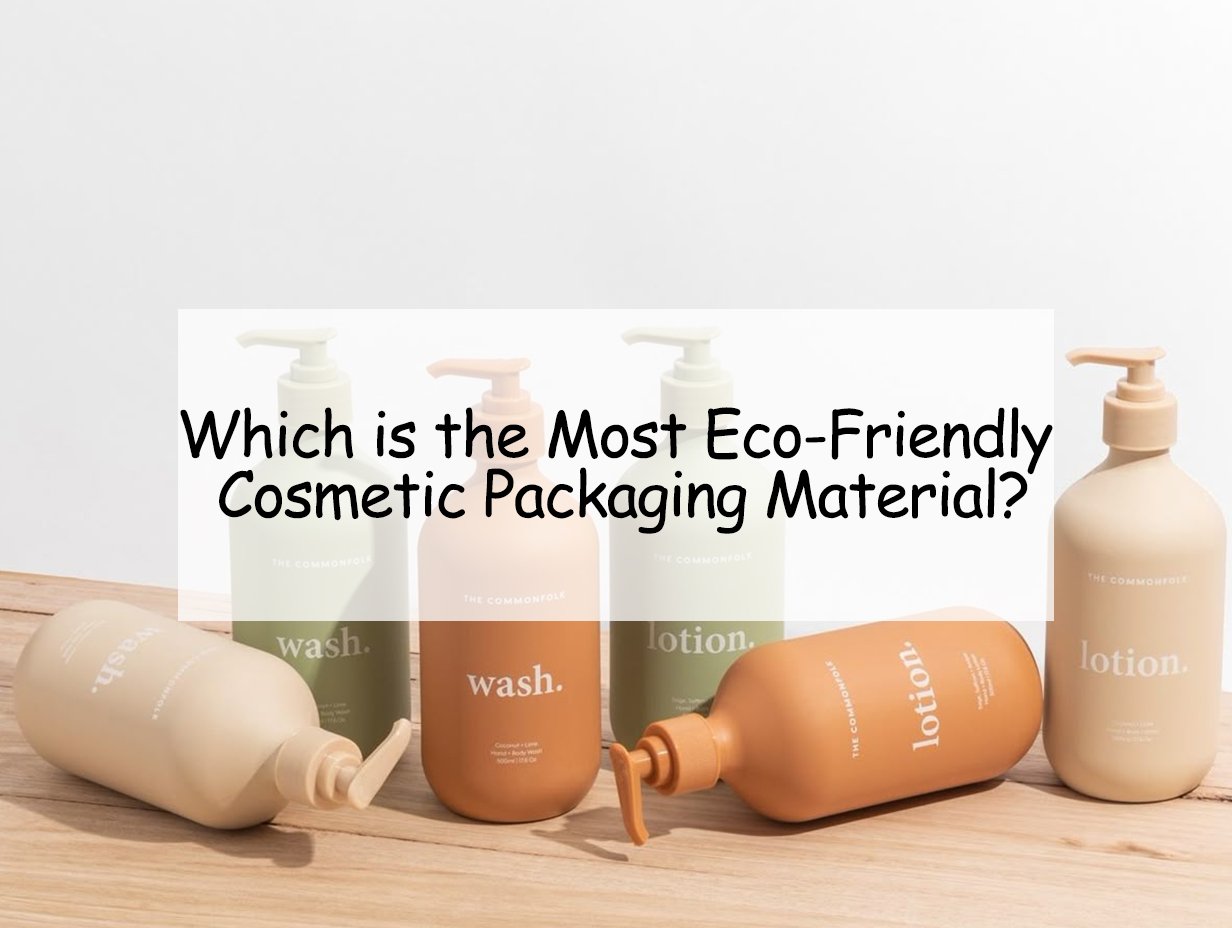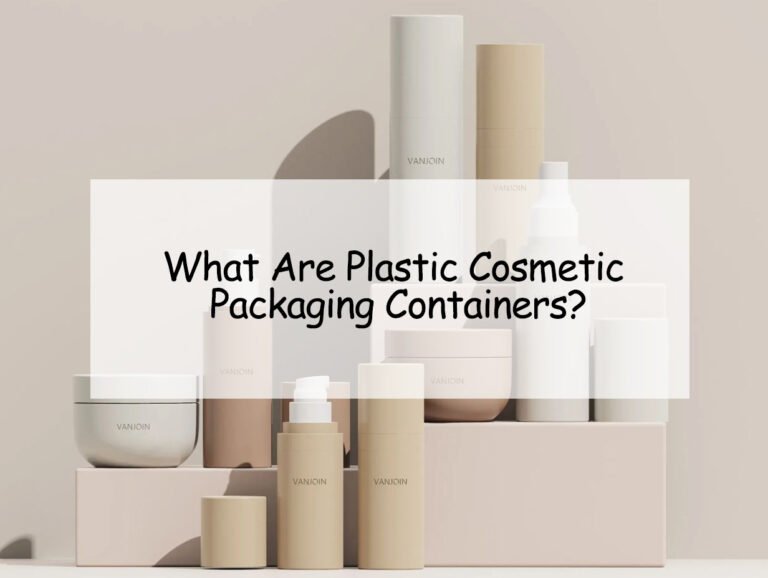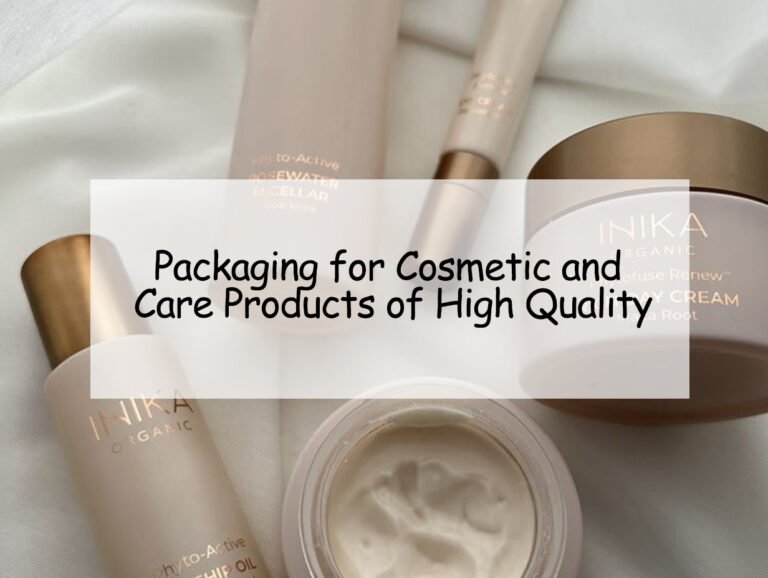Choosing the right packaging is vital for sustainability in cosmetics. Discover eco-friendly options to reduce environmental impact.
Eco-friendly cosmetic packaging materials include recyclable glass, biodegradable plastics, and aluminum, which minimize ecological footprints.
Sustainable practices are essential for brand alignment with eco-conscious consumers.
What is the most eco-friendly packaging1 material?
Eco-friendly materials help reduce waste and promote sustainability.
Recyclable glass2 and biodegradable plastics3 are top choices in eco-friendly cosmetic packaging due to their minimal environmental impact4 and durability.
Leading Eco-Materials
I focus on choosing materials that offer sustainability and integrity. Here's why they matter:
Recyclable Glass
Glass is endlessly recyclable and offers a significant reduction in waste. Its transparency provides a premium appeal, preserving product integrity without leaching harmful chemicals.
Biodegradable Plastics
Biodegradable plastics bring a breakthrough in reducing long-term waste. Crafted from plant-based resources, these plastics decompose naturally, supporting green initiatives.
Aluminum
Aluminum is both lightweight and durable, requiring minimal energy for recycling. It’s corrosion-resistant and holds promise for brands seeking sustainable and protective packaging solutions.
| Material | Benefits |
|---|---|
| Recyclable Glass | Endlessly recyclable, premium look |
| Biodegradable Plastics | Natural decomposition, plant-based |
| Aluminum | Lightweight, energy-efficient recycling |
Choosing these materials helps preserve the environment while maintaining product excellence.
What packaging is not harmful to the environment?
Identifying non-harmful packaging protects our ecosystem.
Packaging that utilizes natural or recyclable materials5, like paper and glass, is least harmful, as it minimizes ecological and chemical impacts.
Non-Toxic Packaging Solutions
I believe finding non-harmful solutions means considering renewables and recyclables. Here’s how they contribute:
Paper
Paper packaging is biodegradable and compostable, reducing waste efficiently. When sourced sustainably, it reduces deforestation impacts and provides a renewable option.
Glass
Glass remains non-reactive and fully recyclable, avoiding harmful chemical leach into cosmetics. Its durability further ensures lasting quality without environmental harm.
Plant-Based Plastics6
Derived from natural resources, plant-based plastics are designed to break down with reduced environmental burden. They represent a shift towards more sustainable industry practices.
| Material | Environmental Benefit |
|---|---|
| Paper | Biodegradable, compostable |
| Glass | Non-reactive, fully recyclable |
| Plant-Based Plastics | Reduces chemical footprint |
Utilizing these materials can mitigate harmful impacts effectively.
What is the most eco-friendly alternative to plastic?
Finding alternatives helps decrease plastic dependence.
Biodegradable plastics and paper-based solutions provide sustainable alternatives to conventional plastics by breaking down naturally and reducing pollution.
Exploring Alternatives
Switching away from plastic involves innovative thinking. I often advise clients on these eco-friendly options:
Biodegradable Plastics
These plastics degrade over time, leaving minimal trace. By using plant-based sources, they significantly lessen reliance on petrochemical-based materials.
Paper-Based Packaging
Paper solutions offer a renewable and biodegradable choice. Sourcing FSC-certified paper ensures that packaging impacts are minimized and managed responsibly.
Hemp
Hemp offers durability and renewability, serving as a promising plastic alternative. Its rapid growth cycle and strong fibers make it a viable eco-friendly option.
| Alternative | Description |
|---|---|
| Biodegradable Plastics | Natural decomposition, reduces petrochemical use |
| Paper-Based Packaging | Renewable, biodegradable, responsibly sourced |
| Hemp | Durable, renewable fibers |
Embracing these alternatives supports environmental preservation while maintaining efficiency.
What is sustainable packaging7 for skin care products?
Sustainability in skincare packaging enhances brand reputation and consumer trust.
Sustainable packaging for skincare includes recyclable glass, aluminum, and paper-based options, ensuring eco-friendly and effective product protection.
Sustainable Solutions for Skincare
Having worked in skincare, I prioritize options promising both sustainability and quality. Here’s how packaging achieves this:
Glass
Glass offers a premium, eco-conscious method of packaging. It protects against contamination and degradation while being fully recyclable.
Aluminum
Aluminum provides lightweight protection and is easy to recycle. Its durability makes it ideal for preserving sensitive skincare formulations.
Paper-Based Solutions
Paper packaging offers a renewable resource that's biodegradable, enhancing sustainability efforts. It can be used in outer packaging or cushioning within products.
| Solution | Benefit |
|---|---|
| Glass | Premium, recyclable, protective |
| Aluminum | Lightweight, durable, recyclable |
| Paper-Based Solutions | Renewable, biodegradable |
Employing these options aligns with sustainable goals without compromising product quality.
Which of these is an eco-friendly packaging material?
Identifying eco-friendly options ensures mindful production.
Aluminum, glass, and biodegradable plastics are recognized as eco-friendly due to their recyclable nature and minimal environmental impact4.
Attributes of Eco-Friendly Materials
Recognizing environmentally beneficial materials is key. Here’s why they're considered eco-friendly:
Aluminum
Aluminum is infinitely recyclable, conserving energy. Its corrosion-resistant properties maintain product integrity while supporting sustainability.
Glass
Glass remains a prime choice for eco-friendliness, being endlessly recyclable. Its non-reactive nature ensures product purity, enhancing consumer trust.
Biodegradable Plastics
Biodegradable plastics decompose naturally, offering a significant reduction in plastic waste. Plant-based variants reduce reliance on non-renewable resources8.
| Material | Eco-Friendly Attribute |
|---|---|
| Aluminum | Infinitely recyclable, energy-efficient |
| Glass | Endlessly recyclable, non-reactive |
| Biodegradable Plastics | Natural degradation, plant-based |
Using these materials demonstrates an investment in sustainability.
What is the most sustainable skincare brand?
Selecting sustainable brands encourages eco-friendly market practices.
Brands like Lush and Aveda lead in sustainability, prioritizing eco-friendly packaging, ethical sourcing, and minimal environmental impact.
Brands Championing Sustainability
I often admire brands that set benchmarks in sustainability. Here’s how they excel:
Lush
Lush is renowned for minimal packaging and ethical sourcing. They prioritize reusable containers and naked products, eliminating unnecessary waste.
Aveda
Aveda leads with natural ingredients and recycled packaging. Their focus on renewable resources8 and community well-being highlights a comprehensive approach to sustainability.
Burt's Bees
Burt’s Bees emphasizes natural ingredients and recyclable packaging. Their commitment to transparency in sourcing and manufacturing places them at the forefront of sustainable skincare.
| Brand | Sustainable Practice |
|---|---|
| Lush | Minimal packaging, ethical sourcing |
| Aveda | Natural ingredients, recycled packaging |
| Burt's Bees | Recyclable packaging, transparency in sourcing |
These brands reflect commitment to eco-friendly initiatives9 and inspire broader industry change.
Conclusion
Choosing the most eco-friendly cosmetic packaging materials involves recognizing recyclable and biodegradable options. Sustainable practices enhance brand reputation while protecting the planet.
-
Discover various materials recognized for their eco-friendly attributes in packaging. ↩
-
Explore how recyclable glass can enhance sustainability and reduce waste in packaging. ↩
-
Learn about the advantages of biodegradable plastics and their role in reducing environmental impact. ↩
-
Discover ways packaging materials can be designed to minimize their environmental footprint. ↩ ↩
-
Learn how recyclable materials can reduce waste and support eco-friendly practices. ↩
-
Understand the significance of plant-based plastics in reducing reliance on petrochemicals. ↩
-
Explore the key attributes of sustainable packaging and its importance in skincare. ↩
-
Explore the significance of renewable resources in promoting sustainability. ↩ ↩
-
Explore various initiatives that promote eco-friendliness in the skincare industry. ↩
2.png)





